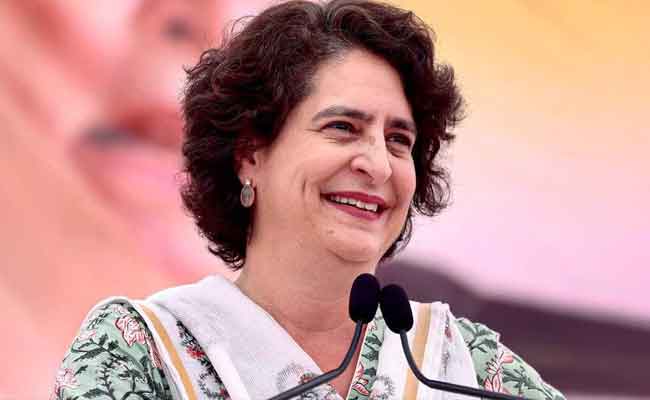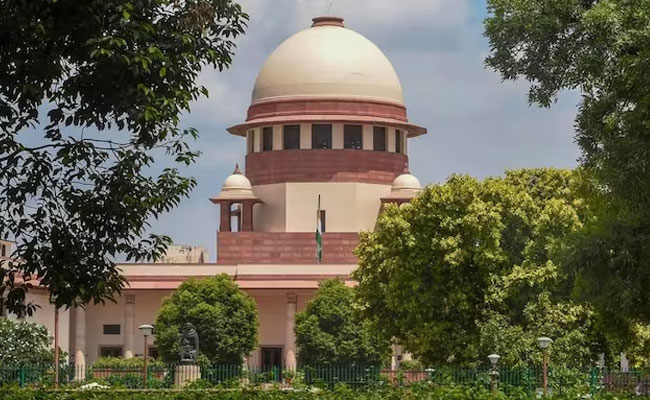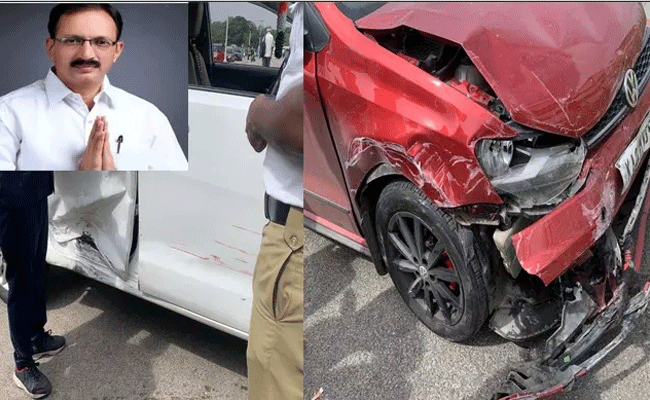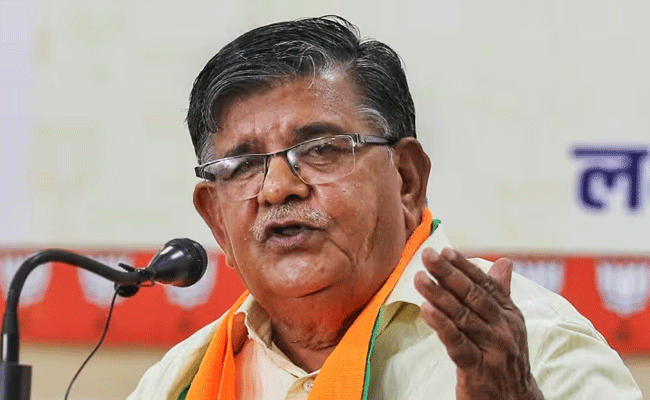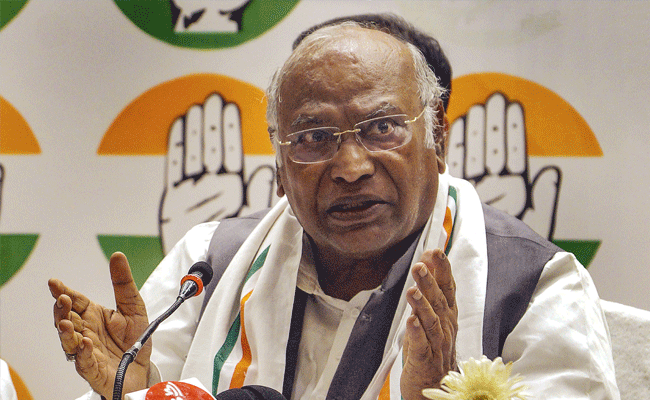Raebareli (UP) (PTI): Congress leader Priyanka Gandhi Vadra on Thursday termed as an "absolute lie" Prime Minister Narendra Modi's remarks that her party will put a "Babri lock" on the Ram temple in Ayodhya if it is voted to power, saying court judgements will be honoured.
Prime Minister Modi had recently stated at a rally in Madhya Pradesh that he wants the BJP-led NDA to win 400 seats in the Lok Sabha polls to ensure the Congress does not bring back Article 370 in Kashmir and put a "Babri lock" on the Ram temple in Ayodhya.
"This is an absolute lie ('yeh ekdum jhooth hai'). The Congress party had said a number of times that it will honour the judgement of the court. We have done this (in the past), and will do so in the future," she told reporters here
On Modi's Adani-Ambani jibe, she said Prime Minister Modi has been forced to take their names.
Rahul Gandhi, she noted, mentions the names of Adani and Ambai in his speeches every day.
Modi had on Wednesday accused the Congress of having a nexus with "Ambani and Adani", and asked if the party has received "tempo loads of black money" from the two businessmen for its leader Rahul Gandhi to stop "abusing" them.
Priyanka Gandhi also said that she wants the prime minister to read the Congress manifesto before commenting on it.
"Though he is the prime minister and elder to me...my advice is that he should first read the (Congress) manifesto, and then comment on it. He has not read it. Whatever comes to his mind, he says that it is written (in the manifesto). All the things that he is saying are written in manifesto are (actually) not written."
Let the Truth be known. If you read VB and like VB, please be a VB Supporter and Help us deliver the Truth to one and all.
New Delhi (PTI): The Supreme Court on Monday refused to entertain a petition which challenged the enactment of three new laws that seek to overhaul India's penal codes.
A vacation bench of Justices Bela M Trivedi and Pankaj Mithal allowed petitioner advocate Vishal Tiwari to withdraw the plea.
The Lok Sabha, on December 21 last year, passed three key legislations -- the Bharatiya Nyaya (Second) Sanhita, the Bharatiya Nagarik Suraksha (Second) Sanhita and the Bharatiya Sakshya (Second) Bill. President Droupadi Murmu gave her assent to the bills on December 25.
These new laws -- the Bharatiya Nyaya Sanhita, the Bharatiya Nagarik Suraksha Sanhita and the Bharatiya Sakshya Act -- will replace the Indian Penal Code (IPC), the Code of Criminal Procedure (CrPC) and the Indian Evidence Act respectively.
At the outset, the bench told Tiwari, "We are dismissing it (petition)".
The bench said these laws have not come into force so far.
As the court showed its disinclination to entertain the plea, Tiwari urged that he be allowed to withdraw the petition.
"The petition has been filed in a very casual and cavalier manner," the bench observed, adding, "If you had argued more, we would have dismissed it with cost but since you are not arguing, we are not imposing cost".
Seeking a stay on the operation of the three new laws, the PIL filed by Tiwari had claimed they were enacted without any parliamentary debate as most of the opposition members were under suspension.
The plea had sought directions from the court for the immediately constitution of an expert committee that will assess the viability of the three new criminal laws.
"The new criminal laws are far more draconian and establish a police state in reality and violate every provision of fundamental rights of the people of India. If the British laws were considered colonial and draconian, then the Indian laws stand now far more draconian as, in the British period, you could keep a person in police custody for a maximum of 15 days. Extending 15 days to 90 days and more is a shocking provision enabling police torture," the plea had claimed.
The Bharatiya Nyaya Sanhita encompasses offences, such as acts of secession, armed rebellion, subversive activities, separatist activities or endangering the sovereignty or unity of the country, in a new avatar of the sedition law.
According to the new laws, anyone purposely or knowingly, by words, either spoken or written, or by signs, by visible representation, by electronic communication, by use of financial means, or otherwise, excites or attempts to excite secession or an armed rebellion or subversive activities, or encourages feelings of separatist activities or endangers the sovereignty or unity and integrity of India or indulges in or commits any such act shall be punished with imprisonment for life or with imprisonment that may extend to seven years and shall also be liable to fine.
According to IPC section 124A, which deals with sedition, anyone involved in the crime may be punished with life imprisonment or with a three-year jail term.
Also, for the first time, the word "terrorism" has been defined in the Bharatiya Nyaya Sanhita. It was absent in the IPC.
Under the new laws, the magistrate's power to impose fines has been increased as well as the scope for declaring a proclaimed offender.

